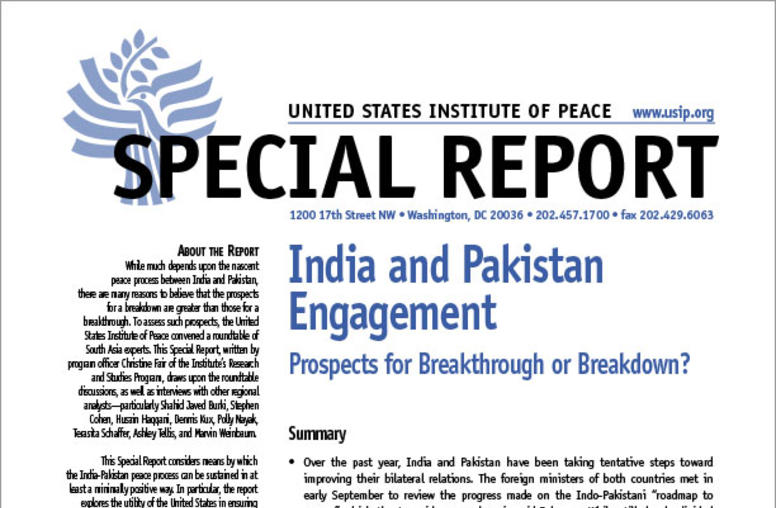Publications
Articles, publications, books, tools and multimedia features from the U.S. Institute of Peace provide the latest news, analysis, research findings, practitioner guides and reports, all related to the conflict zones and issues that are at the center of the Institute’s work to prevent and reduce violent conflict.
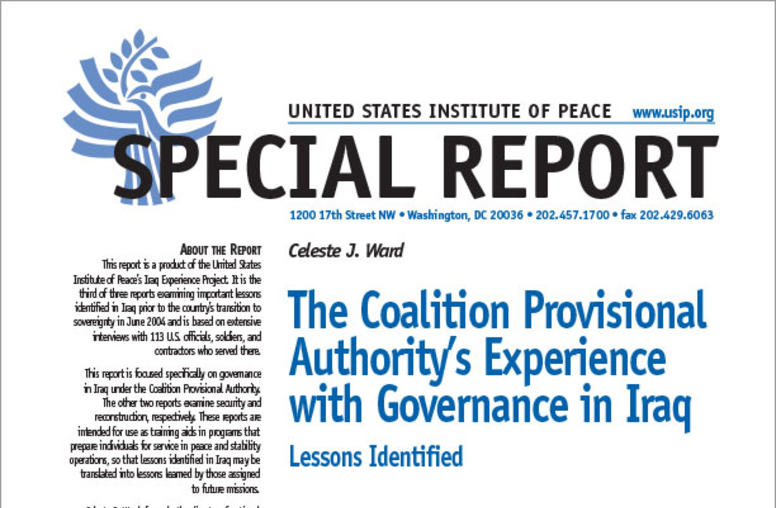
The Coalition Provisional Authority's Experience with Governance in Iraq: Lessons Identified
This report is a product of the United States Institute of Peace's Iraq Experience Project. It is the third of three reports examining important lessons identified in Iraq prior to the country's transition to sovereignty in June 2004 and is based on extensive interviews with 113 U.S. officials, soldiers, and contractors who served there. This report is focused specifically on governance in Iraq under the Coalition Provisional Authority.
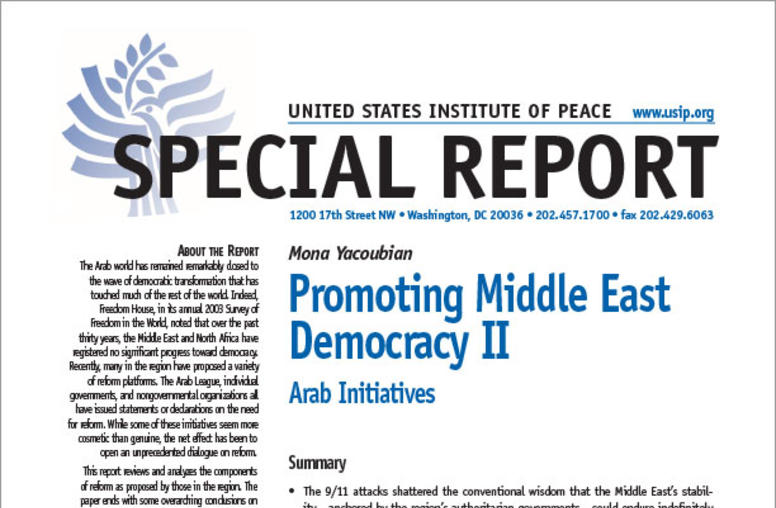
Promoting Middle East Democracy II: Arab Initiatives
This report reviews and analyzes the components of reform as proposed by those in the region. The paper ends with some overarching conclusions on Arab reform efforts as well as recommendations for U.S. policymakers.
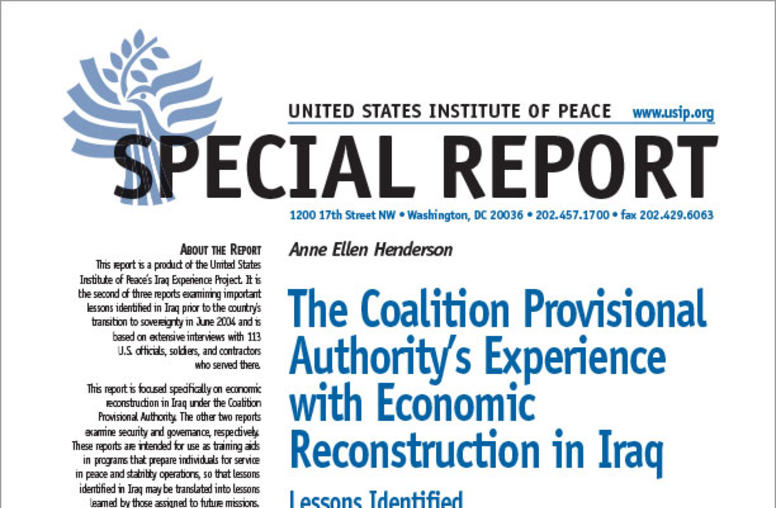
The Coalition Provisional Authority's Experience with Economic Reconstruction in Iraq: Lessons Identified
Summary Iraq's economic reconstruction under coalition occupation was notable for both impressive accomplishments and serious shortcomings. Many successful reconstruction initiatives shared essential elements: they were not affected by security disruptions; they were treated as top priorities; their funding was streamlined and their impact was quick; and they built on existing Iraqi capacity. Unsuccessful reconstruction initiatives had very different elements in common. Policy failure o...
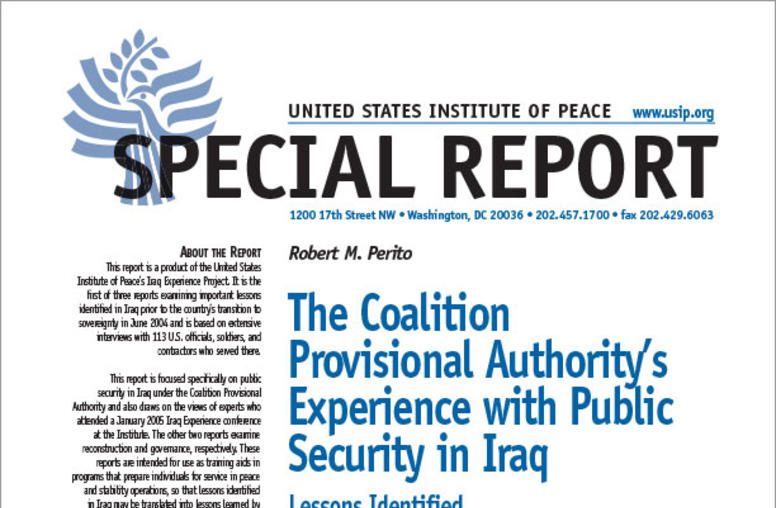
The Coalition Provisional Authority's Experience with Public Security in Iraq: Lessons Identified
Summary Important lessons for future U.S. peace and stability operations can be found in the civil upheaval that occurred in Iraq following the collapse of Saddam Hussein's regime. These include lessons pertaining to public order, street crime, border control, and police recruitment, training, and combat. Large-scale breakdowns in public order should be anticipated in the aftermath of international interventions, particularly in societies emerging from brutal oppression. However, U.S....
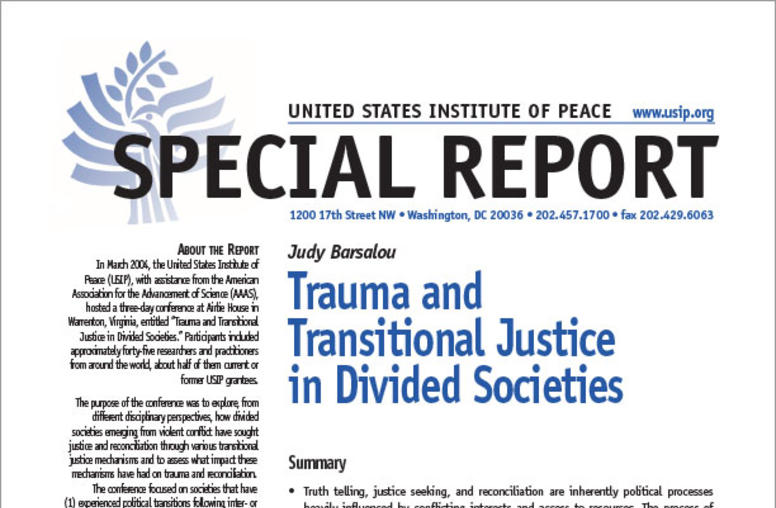
Trauma and Transitional Justice in Divided Societies
In March 2004, the United States Institute of Peace (USIP), with assistance from the American Association for the Advancement of Science (AAAS), hosted a three-day conference at Airlie House in Warrenton, Virginia, entitled "Trauma and Transitional Justice in Divided Societies." The purpose of the conference was to explore, from different disciplinary perspectives, how divided societies emerging from violent conflict have sought justice and reconciliation through various transitional jus...
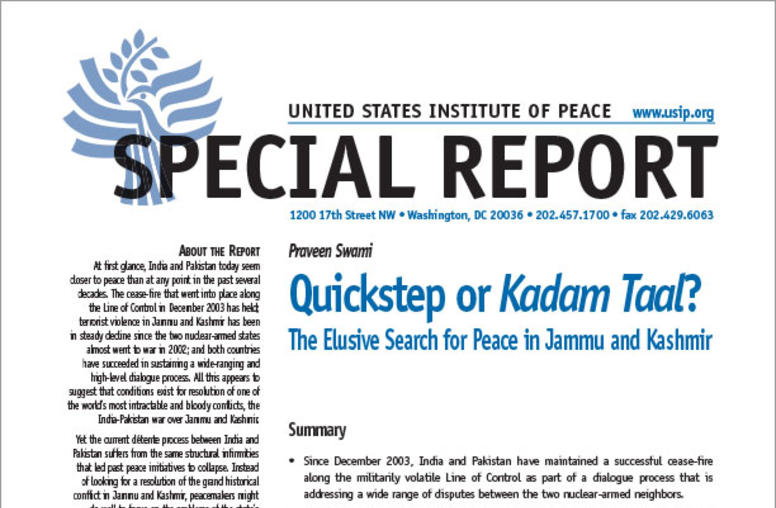
Quickstep or Kadam Taal?: The Elusive Search for Peace in Jammu and Kashmir
At first glance, India and Pakistan today seem closer to peace than at any point in the past several decades. Yet the current détente process between India and Pakistan suffers from the same structural infirmities that led past peace initiatives to collapse. peacemakers might do well to focus on the problems of the state’s peoples—thus building a base from which creative democratic solutions might eventually emerge.
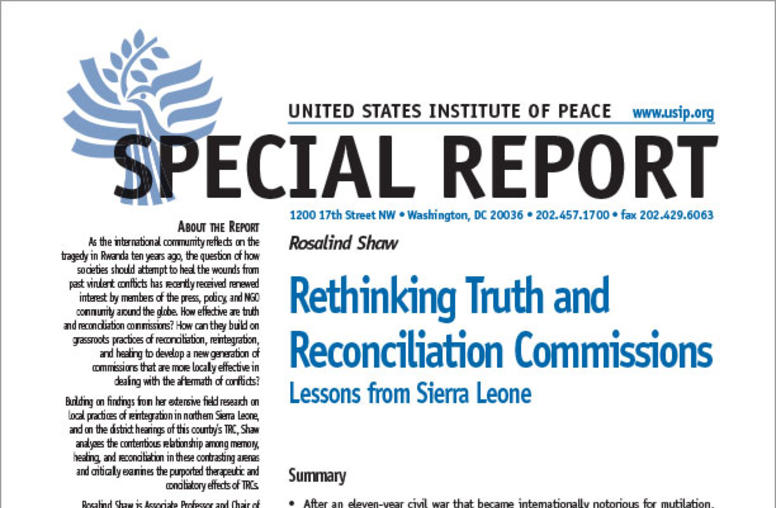
Rethinking Truth and Reconciliation Commissions: Lessons from Sierra Leone
As the international community reflects on the tragedy in Rwanda ten years ago, the question of how societies should attempt to heal the wounds from past virulent conflicts has recently received renewed interest by members of the press, policy, and NGO community around the globe.
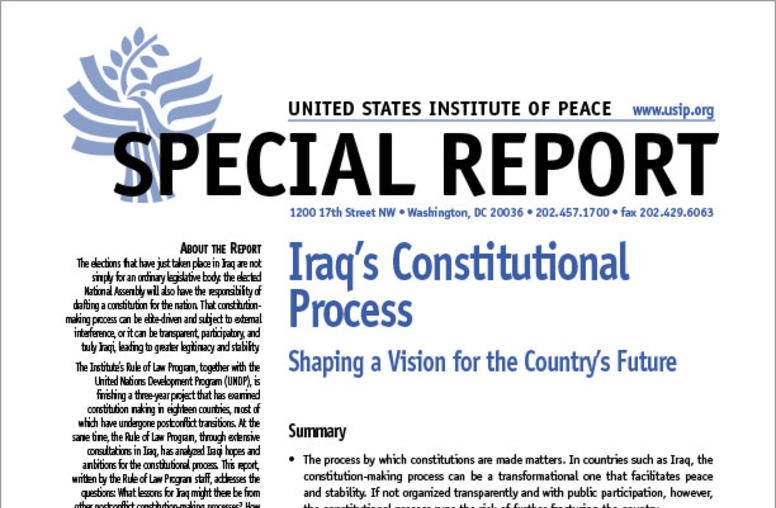
Iraq's Constitutional Process: Shaping a Vision for the Country's Future
The elections that have just taken place in Iraq are not simply for an ordinary legislative body: the elected National Assembly will also have the responsibility of drafting a constitution for the nation. That constitution-making process can be elite-driven and subject to external interference, or it can be transparent, participatory, and truly Iraqi, leading to greater legitimacy and stability.
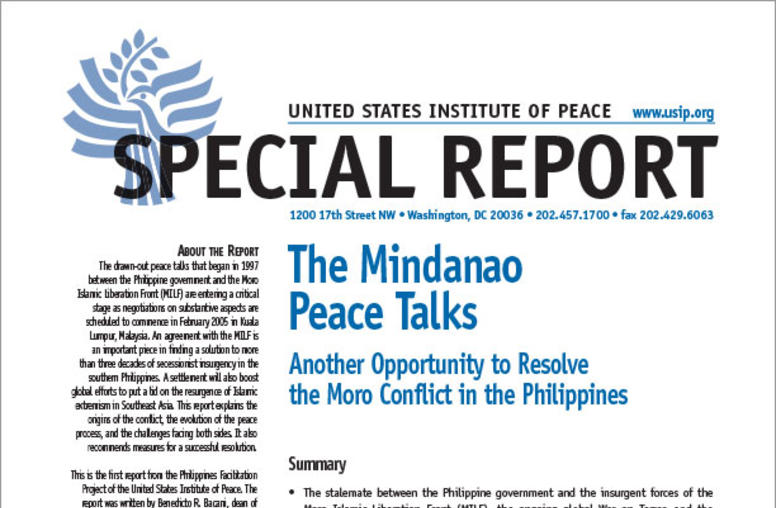
The Mindanao Peace Talks: Another Opportunity to Resolve the Moro Conflict in the Philippines
Summary The stalemate between the Philippine government and the insurgent forces of the Moro Islamic Liberation Front (MILF), the ongoing global War on Terror, and the government's desire for peace in the southern Philippines in order to bolster the country's economy have created an environment conducive to a resolution of the Muslim secessionist rebellion in the south. A leadership change in the MILF has also provided an opportunity to reinvigorate and seek new approaches to the peace ...
